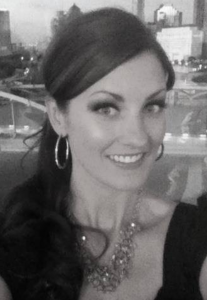Searching for a job is almost like searching for the perfect college. The environment, the people, the cost (or in this case, the salary) are equally important. Having worked for more than two years at two different boutique agencies, I think, from my perspective, bigger isn’t necessarily better:
You gain visibility with the agency’s senior leaders.
When you work at an agency of fewer than 20 people, you get to have serious face time with your boss. CEOs at global agencies don’t know their account coordinators’ names, and they definitely don’t have lunch with them multiple times a week. Nothing beats having the eyes, ears and insights of the most important people in your company on a daily basis.
You’re allowed direct client interaction early in your career.
The first few years in public relations inevitably include building countless media lists and tracking client placements. Teams are smaller, so each member has a larger level of responsibility, which means you not only get to listen in on status calls to take notes but you get to have a voice on them, too.
You become a jack-of-all-trades. Larger agencies have employees who are each experts in their individual specialty. Media relations, blogger outreach, social media development, new business outreach… the person who has healthcare clients will only continue to have healthcare clients. That doesn’t happen at small firms. Your client roster will be extremely diverse, and you will have a role on multiple accounts, instead of focusing the majority of your time on one or two clients.
You have an opportunity to get noticed – quickly. Is it better to be the big fish in the small pond or the small fish in the big pond? That’s the question you need to ask yourself. The smaller the agency, the easier it will be to prove yourself to the entire team. The more you prove you are an asset to your company, the faster they will trust you with larger opportunities and give you more responsibility. These tasks could be anything from writing client press releases to developing and managing social media content to attending new business pitches. In turn, you realize that…
…Your job title doesn’t matter. Small agencies are all about “all hands on deck” and assisting in all projects. A success is a true team success because everyone has a role in making it possible. The individualistic mindset doesn’t exist. There is no time for hierarchy or corporate structure. You can easily be doing the work of a senior account executive at a larger agency. In turn, the amount you learn about the industry from more experienced team members in such a short time period is unbelievable and priceless.
You gain many opportunities for growth. Proving yourself, developing your boss’s trust and forming client relationships are all invaluable tools to a young public relations professional. You may not have projects with the biggest of budgets or clients with the most recognizable of names, but you have a chance to have your ideas heard in brainstorms, you get to place stories in the media and you get to implement all of those strategies and tactics you just spent four years learning about in college.
Your first few years after college are your chance to test out all different types of communications jobs. You may find that agency life isn’t the best fit for your personality and that corporate communications is where you are happiest. Or after some time at a large, global firm you may realize that a boutique agency will give you the mentorship you need and the one-on-one interaction you crave. No matter where you land, don’t discount any opportunity. Good luck!
Do you work a boutique firm, a large agency or in another setting? What are the pros of your individual workplace?
 Ariel Abramowitz is a May 2011 graduate from the Pennsylvania State University College of Communications, where she studied public relations. While an undergraduate student, she was actively involved with the Penn State Dance Marathon (THON) and has continued her philanthropic efforts by managing the social media pages for The Stand, New York City’s premiere dance marathon benefiting the Children’s Miracle Network. She currently works for Rose Communications, a boutique agency in Hoboken, New Jersey, where she is a junior account executive. Ariel is self-described social media addict and spends a good portion of her time scrolling through Tweetdeck and blogging about her daily tribulations. Follow her @arielsam924!
Ariel Abramowitz is a May 2011 graduate from the Pennsylvania State University College of Communications, where she studied public relations. While an undergraduate student, she was actively involved with the Penn State Dance Marathon (THON) and has continued her philanthropic efforts by managing the social media pages for The Stand, New York City’s premiere dance marathon benefiting the Children’s Miracle Network. She currently works for Rose Communications, a boutique agency in Hoboken, New Jersey, where she is a junior account executive. Ariel is self-described social media addict and spends a good portion of her time scrolling through Tweetdeck and blogging about her daily tribulations. Follow her @arielsam924!



